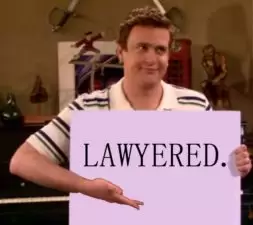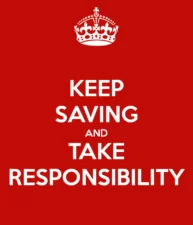
One of my favorite stories in tax law is how the 401(k) came to be. I realize the bar here is pretty low. I mean, what’s your favorite tax law story?

Well, the setting is the late 70’s. It’s the middle of the Carter administration. For years rich folk had been attempting to play a shell game with their earnings. This is an important thing to remember about the income tax code in the post WW2 period before the 80’s. Some folks (alright, lefties) like to point out that the top tax bracket used to be, like, 90%. What they fail to point out is that massive amounts of income could be sheltered from the income tax one way or another. One of the ways was for rich employees to have their company defer their compensation into the future, but also to invest that money on their behalf. That way the employee effectively gets control of the money, but doesn’t actually have to pay taxes on it because it’s not income yet. This was an ongoing debate between corporations and the IRS for 20 years or so. (Apparently this is covered in Hicks vs US but I can’t seem to track down the actual cases as it seems that people named Hicks sue the US all the friggin’ time).

So in 1978 the government tries to put a limit on this loophole once and for all, they introduce section 401(k) to the tax code to limit the amount of money that companies can defer on behalf of employees. The next few years are pretty quiet until a benefits consultant by the name of Ted Benna figured out that it could be used to create a retirement plan as a general benefit for employees. Johnson and Johnson then installed one of the first 401(k) plans. There were some changes to the law after congress saw (or was lobbied regarding) what was going on and promoted the status of the 401(k) from what was essentially a loophole to a cherished part of the tax code.
It’s hard to remember what the retirement situation was for people before the 401(k). When I ask people about it I usually hear idiotic things like, “everyone had a pension”. This is just incorrect, what it’s so disappointing to see blog posts like this one from slate: Even the People Who Pushed the 401(k) Think it’s Been a Huge Mistake. Go ahead, and read it.

For those of you that can’t be bothered the article basically reads as, the 401k is so bad even the people who suggested it wish it hadn’t happened, the 401k isn’t working for most people, suggested fixes for 401k’s won’t work, “life has become too expensive for people to save adequately”,

and, to top it all off, we should just increase social security payments.
To be fair this article was written Helaine Olen, who seems to be a relatively well-respected columnist who writes about, among other things, how the personal finance industry takes advantage of people. One hopes that this article doesn’t reflect the overall quality of her thinking, let’s deal with the article point by point.
The People Who Supported the 401(k) Now Oppose It
This simply isn’t true. You can certainly get most of them to say something negative about 401(k)’s. Benna was at one point quoted referring to the 401k system as a “monster” that “needs to be blown up”. It takes a little digging to discover that Benna actually thinks that 401(k)’s are superior to the system that they replaced. He was merely saying that most companies offer too many confusing options for their employees, and that educating employees on investing was probably causing more problems than it was fixing. Of course, reasonable people explaining the issues with 401(k)’s make for terrible headlines. The fact that most of those issues are mostly under your control makes for terrible headlines. “You should probably save money for retirement: make sure you buy and hold“. Does not generate many clicks. Some variant of: “The System Is Stacked Against You: Perfect Excuses for Any Situation!” tends to work better.

The 401(k) isn’t Working for Most People
This is the closest Helaine comes to the truth. It’s absolutely true that most people haven’t saved enough for retirement to continue to spend the same amount of money they spent before retirement. Unfortunately, that’s kind of a bonkers standard. The important question is, does the 401(k) work better than the system it replaced? If so, how do we continue improving?
Can we all go ahead and remember that the 70’s were not a magic time where there was no poverty, everyone had a pension, and money grew on trees? Back when “everyone” had a pension before the 401(k), “everyone” turns out to be: 38% of private sector workers. Yup, 62% of those workers weren’t covered by a pension.

Today 13% of workers have access to a private sector pension. So, when “everyone” lost those pensions, what we really mean is 25% of private-sector workers, who might have had pensions in the past, don’t.
Switching jobs under a pension scheme caused some issues. Occasionally companies offering the pensions go bankrupt. In principle if you have a pension from a company that went bankrupt you should be covered by the Pension Benefit Guarantee Corp, but this corporation only existed for 5 years before pensions peaked.
Many people don’t have access to a 401(k) at their work, but those that don’t can still save in an IRA like everyone else. Yes, the contribution limit is low (currently $5,500), but it’s not as though you literally have nothing (as you would have in the pre-401k and IRA days).
One last quibble, Helaine acts as though the stock market crash permanently damaged portfolios. If you just sat on a diversified mutual fund, like a target-date fund or almost any sort of index fund, you have recovered far more than you lost in 2008 at this point.
Yes, some people panicked and sold at the bottom. Some people kicked up their contributions at the bottom. Why do only the people who did stupid things with their money count? Retirees sometimes waste money gambling, that doesn’t create a retirement crisis. The fact that some people did stupid things with their money isn’t the fault of the 401(k).

Poverty rates among seniors are at all time lows, and that’s relative poverty rates, if you use measures of absolute poverty the picture is even better. The percentage of american’s covered by retirement plans of some sort are at all time highs. The percentage of men over the age of 65 working sits at 23% compared to 35% in the 70’s. This despite the fact that people are now healthier and more capable of work.
Suggested Fixes for 401(k)’s Won’t Work
Economist Richard Thaler suggests some fixes:
- Auto-enrollment
- Auto-escalate
- Company match
- Low fee default
- Offer to employees without plans
Helaine responds:
Unfortunately, it’s more complicated than that. Many companies already do auto-enroll their workers, but as of now employers aren’t required to even offer a 401(k) and they’re certainly not required to offer a match—and if they do match, they can stop at any point. Given the political climate in Washington, it’s hard to believe any of that will change soon.
Yes, many companies already do auto-enroll their workers, but Thaler doesn’t suggest this thinking that no one has ever tried that. It’s precisely because auto-enrolling workers has shown to be effective, that he suggests it. The whole second part of her point is that employers aren’t required to do any of these things, therefore they will never happen, because it’s not politically feasible. That’s just completely bonkers, especially considering her alternative:
Just Increase Social Security Payments
Yeah, the lady who two paragraphs earlier had just dismissed 401(k) plans to have a low fee default as politically untenable is suggesting that raising social security payments is the real solution to the retirement crisis.
Let me break down precisely what’s wrong with this. Your social security contributions go into the social security trust fund. This fund is invested in government bonds which on average have returned 1.6% real over the past 100 years. Over the last 100 years the stock market has returned about 7% real. If you plan on funding retirements from contributions people will have to “save” (be taxed) much more through social security than they ever would with a 401(k) to maintain the same standard of living. The fact that money in a 401(k) is invested productively as opposed to government bonds is just too great a gap. If you don’t believe me, do the math yourself. How much do you need to be taxed for a 1.6% real return to pay for a 30 year retirement at the same standard of living you had pre-retirement. (The fun part is that you don’t need any extra information to solve this particular puzzle).
The upshot is that the author would prefer to supply seniors with money through an expansive welfare state disguised as a pension program, therefore any progress 401(k)’s have made when compared to the pension world of the past is simply ignored. Any reasonable improvements to the current system are dismissed out of hand.
Astute readers will note that I skipped her other point, “life has become too expensive for people to save adequately”. That’s a whole ‘nother blog post.
You may want to check these out:
Adam Woods is a physicist. His research interests include building software to run and build geomagnetic models. Adam got interested in personal finance in the great recession when it became obvious an interest was necessary.
After harassing his friends and family (and a short intervention) he took to the web where he blogs about finance, investment, politics, and economics.
Adam is currently located in Boulder, Colorado where he can generally be found hiking, biking, or running a D&D campaign. He can also be contacted at adamwoods137@gmail.com.


Interesting counter-argument. I would say that it would be good if current tax laws allowed people who did not have 401(k)s to invest as much in their IRAs as people are allowed to invest in 401(k)s and IRAs combined. But, non-self-employed folks without 401(k)s tend not to have the problem that they’d love to put more in but can’t.
I do think the compensation system is so skewed here. With a good job, much of your compensation comes in terms of benefits (401(k) match, various insurance paid in part by the employee) that make income inequality far more skewed than it appears even at first glance. What’s the answer? I don’t know. But I do worry that putting more money in the stock market (like all of social security) would just breed an artificially skewed market and more risk for retirees. (to be fair, privatizing it all is not anything you seem to have advocated in your post, either, but it does seem to be under consideration now.)
Well, it’s important to remember that the market is a big place. At the margin if all of social security were instead put someplace else the yields on treasury bonds would likely increase. Treasury bonds set the risk free rate which would have a downward pressure on the market. I don’t think that social security needs to be privatized. There are plenty of reasons to oppose the privatization of social security, but I think it is very unlikely would artificially skew the market. Of course given what market valuation ratios are right now I’m not sure how I would tell 🙂
Social security is not going to get privatized in the Trump administration, for political considerations. Trumps base skews old and nobody loves social security more than the people who get written checks from it.
Income inequality is a problem, but the social security tax is regressive. Honestly it’s not a problem I worry about too much, in part because I’m of the opinion that income inequality is probably going to shrink over the next 20 years.
A lot of good points. I definitely didn’t know that pension availability was so low back in the ‘golden years’. However, although there are serious flaws in her argument, I think the debate really comes down to whether you believe people deserve the consequences of both their own actions, but also their own financial skills and prowess. Of course, conservatives will answer one way, liberals will answer another way.
That’s true, I come down more on the “deserve the consequences of your actions and skills”. The good news is that poverty among the elderly has been falling and is now at an all time low.
“I can’t seem to sell any prints of this.” …still laughing about that.